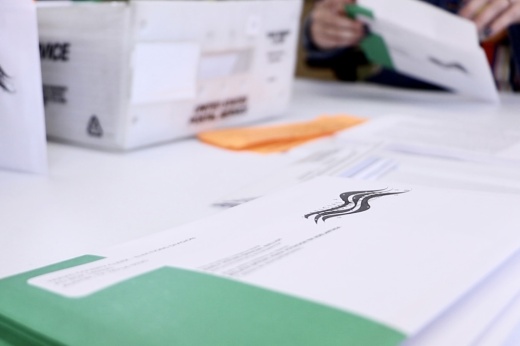The three voters who brought the case to the Supreme Court argued the law discriminates against younger voters and violates the 26th Amendment to the U.S. Constitution, which prohibits denying the right to vote to citizens who are at least 18 years old.
Texans under the age of 65 can vote by mail if they are sick or disabled; are expecting to give birth within three weeks of election day; will be out of the county during early voting and on election day; or are confined in jail but otherwise eligible.
How we got here
In 2020, the Texas Democratic Party filed a lawsuit requesting that all registered voters be allowed to vote by mail without an excuse during the COVID-19 pandemic in order to limit the spread of the virus. The suit argued voters were “denied an equal opportunity to participate effectively in the political process” and said minority groups were disproportionately impacted.
A federal district judge in San Antonio sided with the plaintiffs in May 2020, but Texas’ mail-in voting laws remained in place after the state appealed the ruling to the 5th U.S. Circuit Court of Appeals.
In 2022, the district court dismissed the case, stating the voters’ arguments were “based on speculative future election policies and pandemic conditions.” The 5th Circuit Court affirmed the lower court’s decision, and the case was later brought to the Supreme Court.
Three Texas voters argued in a December 2023 petition that expanding mail-in voting would allow more young voters to participate in elections.
“Young people can face substantial barriers to voting in person, including lack of transportation, long lines, inability to find or access their polling place, and limited time off from work,” the petition reads.
In a March court filing, Texas Secretary of State Jane Nelson said: “Texas also has a compelling and undisputed need to prevent the very ‘real’ threat of voter fraud ... limiting mail-in ballots to those who likely need—as opposed to want—them is entirely rational.”
According to MIT’s Election Lab, documented cases of voter fraud are very rare, although fraud may be more common with mail-in voting.
What they’re saying
“Many states irresponsibly and unconstitutionally changed their voting policies prior to the 2020 election,” Texas Attorney General Ken Paxton said in a news release. “Fortunately, we did things differently in Texas: we fought hard to uphold Texas law and defend the integrity of elections in this state. We have worked tirelessly to keep our elections free and fair.”
Texas Democratic Party Chair Gilberto Hinojosa condemned the Supreme Court decision.
“This decision means that the voices of young Texans will continue to be suppressed,” Hinojosa told Community Impact. “All young Texas voters can struggle physically accessing the polls for any number of reasons—which mail-in voting could cure if given the option. It also empowers Texas Republicans in their continued efforts to pass and enforce voter suppression laws that make Texas the hardest place in the [country] to cast a ballot."





